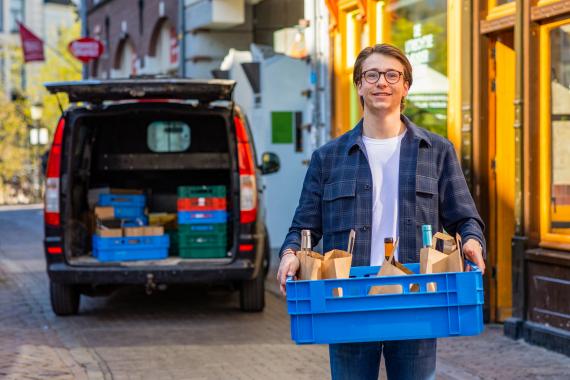In our quest for a better future, sustainability has taken center stage. From reducing waste to conserving energy, embracing sustainable transportation, supporting local products, and cultivating eco-friendly habits, there are countless small steps we can take to create a greener world. Let’s explore some of these practices in detail.
Reduce Waste
Reducing waste is a fundamental step towards sustainability. By being mindful of our consumption patterns and making conscious choices, we can significantly reduce our ecological footprint. Carry reusable shopping bags, water bottles, and coffee cups to avoid single-use plastics. Opt for products with minimal packaging or packaging made from recycled materials. Practice proper recycling techniques to ensure that materials are repurposed rather than ending up in landfills. Consider composting organic waste to minimize the amount of waste sent to disposal sites. By adopting these practices, we not only reduce waste but also conserve valuable resources and protect the environment for future generations.
Conserve Energy
Conserving energy is crucial for sustainability and combating climate change. Small changes in our daily habits can make a big difference. Turn off lights, appliances, and electronics when they are not in use. Replace traditional light bulbs with energy-efficient LED bulbs that consume less electricity. Consider investing in smart thermostats that optimize energy usage and reduce heating and cooling costs. Insulate your home to prevent heat loss in winter and minimize the need for excessive heating. By adopting energy-saving measures, we can lower our carbon footprint and contribute to a more sustainable future.
Embrace Sustainable Transportation

Embracing sustainable transportation is a powerful way to reduce carbon emissions and air pollution. Whenever possible, choose sustainable modes of transportation. Walk or cycle for short distances instead of driving. Make use of public transportation systems or carpool with colleagues or friends to reduce the number of vehicles on the road. When purchasing a vehicle, consider hybrid or electric models that have lower emissions. By opting for sustainable transportation options, we can improve air quality, reduce traffic congestion, and lessen our impact on the environment.
Support Local and Sustainable Products
Supporting local and sustainable products is an important aspect of sustainable living. When shopping for groceries and other goods, prioritize products from local businesses and producers. Look for organic, fair-trade, and ethically sourced items. Choosing products with minimal packaging or packaging made from recycled materials further reduces waste and promotes sustainable practices. Additionally, consider supporting local farmers’ markets and community-supported agriculture programs to access fresh, locally-grown produce. By supporting local and sustainable producers, we contribute to the local economy, reduce the carbon footprint associated with long-distance transportation, and encourage environmentally friendly practices.
Cultivate Sustainable Food Practices
Cultivating sustainable food practices is not only beneficial for our health but also for the environment. Opt for locally grown, seasonal, and organic produce whenever possible. Locally sourced food reduces the need for long-distance transportation, minimizing carbon emissions. Consider reducing meat consumption and incorporating more plant-based meals into your diet, as animal agriculture has a significant environmental impact. Additionally, grow your own food by creating a vegetable garden or participating in community gardening initiatives. These practices promote sustainable agriculture, conserve natural resources, and minimize greenhouse gas emissions associated with the food industry.
Educate and Spread Awareness
Education and awareness play a crucial role in driving sustainable change. Stay informed about environmental issues, climate change, and sustainable practices through reliable sources. Share your knowledge with friends, family, and colleagues, and engage in conversations about sustainability. Use social media platforms to promote sustainable initiatives, highlight success stories, and connect with like-minded individuals and organizations. By inspiring and empowering others, we can create a collective commitment to sustainability and amplify our impact. Together, we can work towards a more sustainable future for the well-being of our planet and future generations.
Conclusion
Every small step matters on the journey toward sustainability. By reducing waste, conserving energy, supporting local products, embracing sustainable transportation, cultivating eco-friendly food habits, and spreading awareness, we can collectively create a greener and more sustainable future. Let’s embrace these practices in our daily lives and inspire others to join us on this path. Together, we have the power to make a positive impact and create a world where environmental stewardship and a thriving planet go hand in hand. Start today and be a part of the change for a brighter and more sustainable future.

